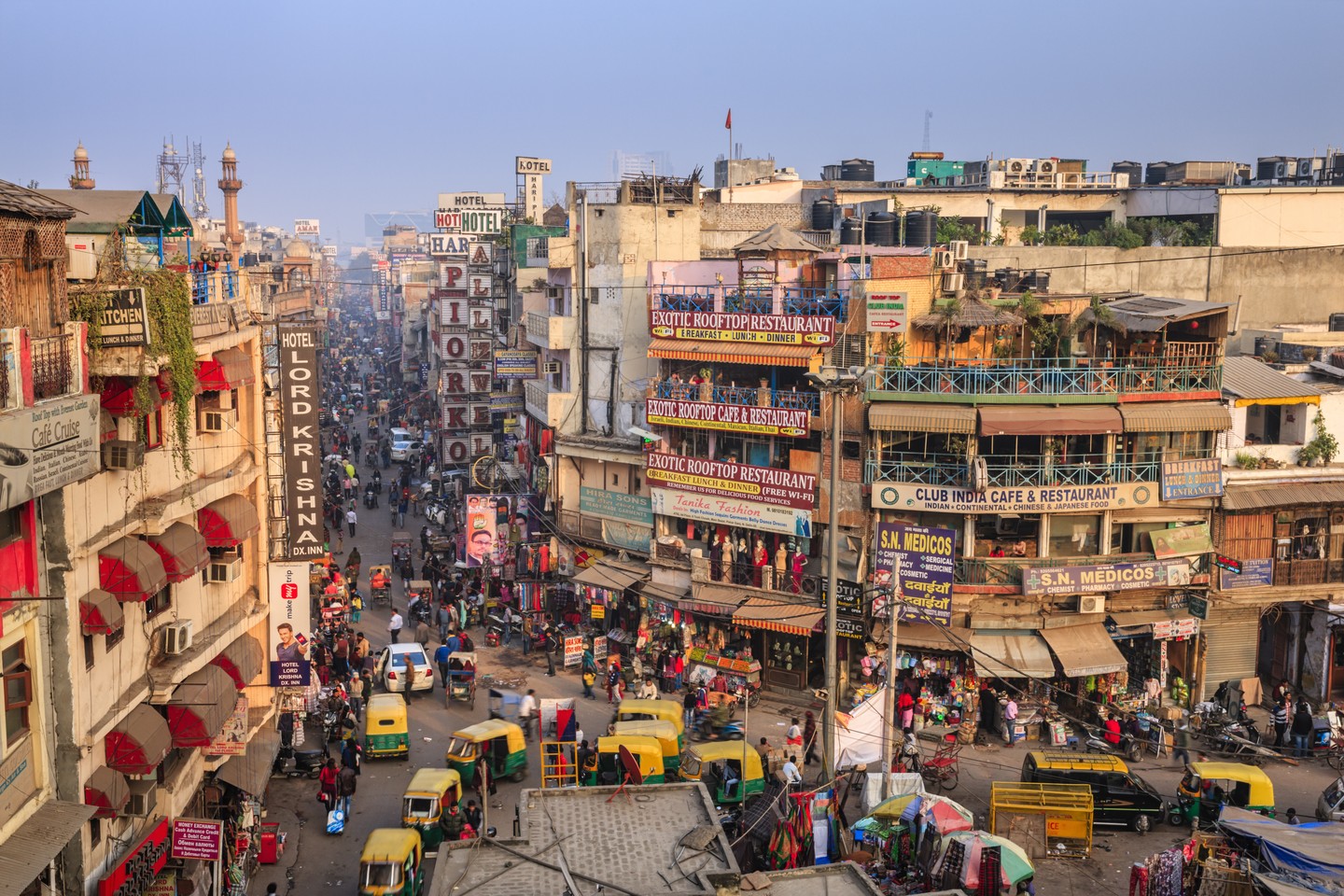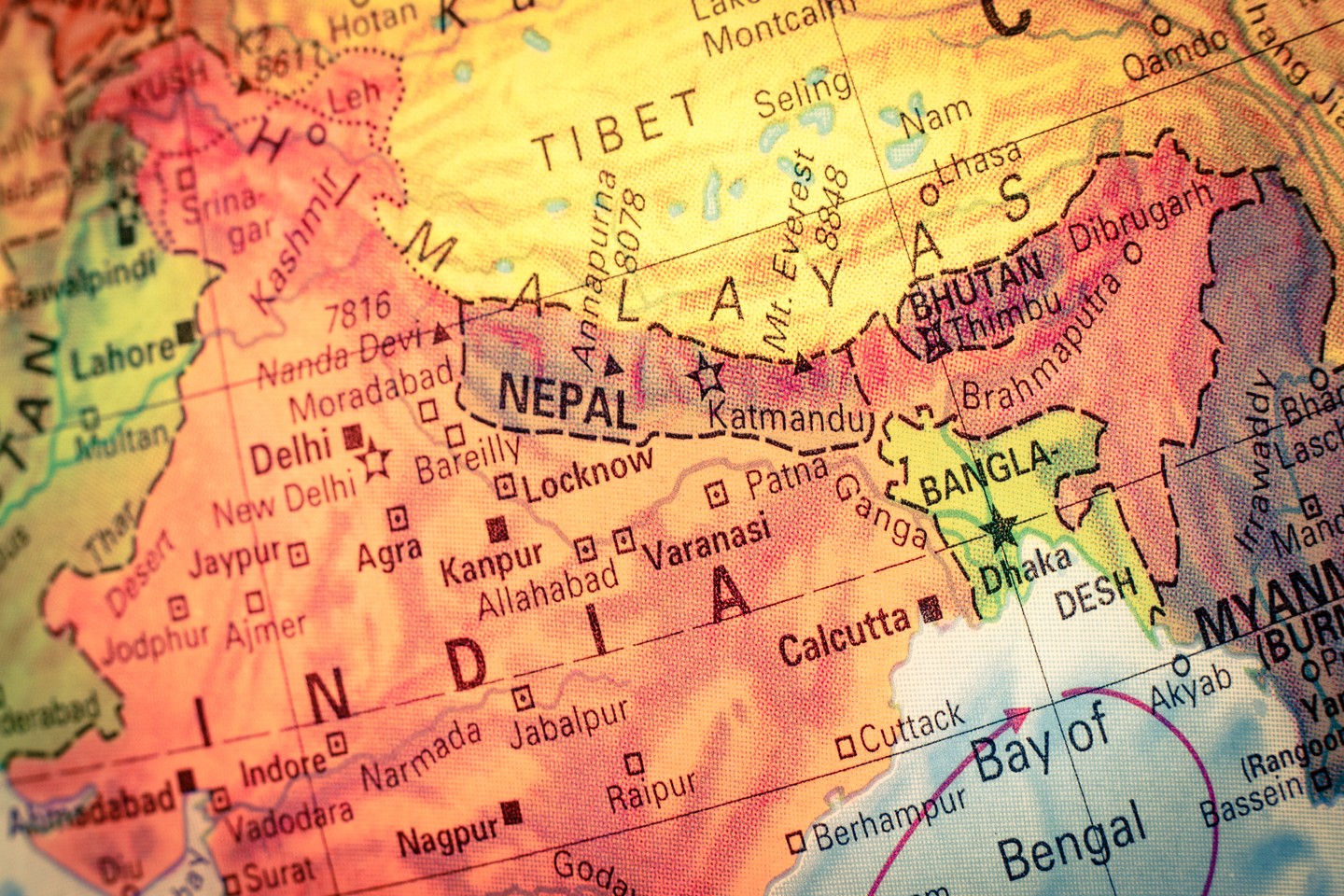During a Financial Times career spanning over 20 years, South Asia bureau chief John Reed has worked in Bangkok, Jerusalem, London, Johannesburg, and Warsaw, bringing FT readers the insights and analysis they need to develop a global perspective on business, politics and finance. Now based in New Delhi, John’s focus is the India story, as well as the region more widely.
With a team split between New Delhi and Mumbai, the FT’s South Asia bureau reports in-depth not just on Indian politics and society, but the whole gambit of matters impacting India and its regions, from Bollywood to economic policy.
We spoke with John to find out more about his team's reporting, why India coverage is becoming increasingly prevalent on the FT.com homepage and what’s special about how the FT covers the South Asia region and those who subscribe to it.
An emerging player in global affairs
As a self-confessed “current affairs addict” and coming from a family of journalists and writers, John Reed admits he may well be in his perfect job. In over two decades as a Financial Times foreign correspondent John’s watched India grow as a key market and manufacturing centre, and in his role as South Asia bureau chief, oversees the FT’s coverage of the region at a time where India is seen increasingly as an emerging superpower and diplomatic player.
The bureau aims to provide a more complete snapshot of what’s happening in India than other global publications and relies on a small but talented team. “We have three journalists in Delhi; myself, Ben Parkin, our South Asia correspondent, and Jyotsna Singh, who is a local producer with a wonderful experience bank of her own,” John explains. “Then in Mumbai we have Chloe Cornish, who's covering the world of business, finance, stock markets, Bollywood, really everything that comes out of India's business hub.”





There was one recent day when we had, I think, three India stories at the top of the FT.com homepage.
Now the world’s fifth largest economy and with a growing role in the world as it takes over the rotating presidency of the G20, India is also gaining greater prominence in the FT’s reporting. “There was one recent day when we had, I think, three India stories at the top of the FT.com homepage,” John says. “Multinationals have to have a presence in India or at least a plan, so it's increasingly important as a place for both selling and making things, and if you're a business journalist, writing about all of this.”
Collaboration between the FT’s team in India and colleagues across Asia, as well as the US and Europe is something that’s already embedded in the culture of the FT’s editorial network, but it’s also becoming more common as many of the big stories coming out of India are tending to be global in nature.
“I've seen an increasing number of stories in India that tie up with Silicon Valley, so I'm working with colleagues in California, or touch on the world of corporate lending, or private equity, so I'm dealing with colleagues in New York or London,” John explains. “What’s good about the FT’s culture, and also makes it a better read, is that the journalists talk to one another, and work with one another.”
What’s good about the FT’s culture, and also makes it a better read, is that the journalists talk to one another, and work with one another.
What next for India and South Asia?
The eyes of the world will be on India in the lead up to the first ever G20 summit to be hosted in South Asia later this year, and it’s expected that the country can bring something to the table on global matters like the Ukraine conflict. John sees 2023 as a potentially landmark year for India in more ways than one.
“There's a big symbolic moment in 2023, as India surpasses China to become the world's most populous country,” he says. “And again, we'll be writing about what it means to be the world's biggest country in terms of population.”
There's a big symbolic moment in 2023, as India surpasses China to become the world's most populous country.





With the spotlight firmly on India, the FT will look to provide readers with perspectives on the possible implications. “Does India celebrate and profit from this moment, or does it squander the opportunities presented to it?,” John asks. “These are not just me as an obnoxious foreigner asking these questions. These are the same questions Indians ask themselves every day.”
While these milestones represent key themes for the South Asia team, the usual areas of FT interest, including politics, business, finance and policy, continue to be a focus. “We've also got an election coming up early next year in which Modi's government and the ruling party will face voters again,” John adds. “We'll be following what happens with that and we do also have elections coming up in both Pakistan and Bangladesh, which we'll be covering as well.”
The need for international perspectives
In the digital age where huge volumes of news are freely available at the touch of a smartphone, it’s not unfair to ask why the FT is unique in what it offers to readers. Equally, the sheer amount of information that business leaders and professionals are bombarded with each day can be overwhelming, and many seek out a smaller number of trusted publications that tell them just what they need to know.
“The FT is a great first read for any leader in business, finance or politics,” John explains. “I would definitely, with or without working at the FT, keep it as one of my first reads because we cover all of the news of note that you need to know about the most important events in the world.”
I would definitely, with or without working at the FT, keep it as one of my first reads.
In a global India, it’s becoming increasingly important to develop an appreciation and awareness of international affairs. While it’s unlikely to ever be enough to read only one news source, John is clear on what sets the FT apart. “We have excellent competitors in India as we do all over the world, but the FT, if I dare say, is a more holistic read,” he says. “You will read about Indian politics and society, but you’ll also read about the world of Bollywood, of Indian culture, of the big business leaders and the debates in economic policy.”
Follow the FT’s India reporting
FT.com subscribers can use the myFT feature to follow John, as well as South Asia correspondent Ben Parkin, Delhi reporter Jyotsna Singh, and Mumbai correspondent Chloe Cornish. Include the team’s coverage in your daily or weekly email digests or set up immediate alerts whenever a new story is published.
Also look out for the team at FT Live events, where subscribers can discuss the big issues and challenges with FT journalists and like-minded peers. “FT subscribers are deeply engaged people,” adds John. “They're extremely interested in what we're writing about, have opinions to share and passionate feelings, certainly about India and quite often about the FT as well.”
Follow the team on Twitter:
@JohnReedwrites
@b_parkyn
@ChloeNCornish
Learn more about FT Professional
FT Professional equips users with specialist knowledge and tailored insights from the Financial Times to help them make the best strategic and commercial decisions in an unpredictable global environment. Our customers get more from FT journalism through additional resources, curated news and action-oriented tools.
Help your team make better business decisions with the FT’s trusted commentary and analysis. For more information about how FT Professional can help your organisation, please get in touch.
